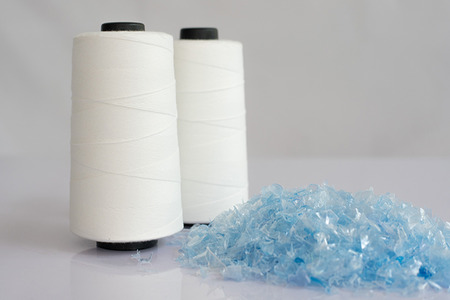
New GMO testing by OEKO-TEX to detect genetically modified organisms in organic cotton
YarnsandFibers News Bureau 2018-05-18 11:50:00 – ZurichGeorg Dieners, OEKO-TEX® General Secretary said that, “We learned in our ‘The Key to Confidence’ study that consumers who buy eco-friendly clothing and home textiles are likely to verify claims.†“The new GMO testing gives manufacturers and marketers confidence that their organic cotton products meet regulatory and consumer expectations with regards to GMOs as well as the independent, traceable documentation to prove it.â€
To qualify as organic and to be marketed as such, cotton must meet a comprehensive list of criteria governing the cultivation, processing, and segregation of the cotton. One major requirement is that the cotton plants cannot be genetically engineered. How can a manufacturer be confident that organic cotton products are not contaminated with non-organic cotton so that customer and consumer expectations as well as regulations are consistently met with today’s complex, global, multi- sourced supply chain?
The popularity of organic cotton has grown substantially in recent years. Consumers are getting worried about the environment and about harmful substances in the products they buy for themselves and their families. Organic foods and textiles are good choices, and are products for which they are willing to pay a premium for them.
Consumers expect the organic products they buy to be genuine and verifiable as such. New testing from OEKO-TEX® helps companies throughout the global supply chain easily test their organic cotton products for GMOs (genetically modified organisms), a molecular-level indicator of whether or not cotton products actually meet a fundamental definition of organic.
Today, about 70% of cotton globally is genetically altered. For example, some forms of cotton have been engineered to be herbicide-resistant. Others have been infused with an insecticide to kill pests like boll weevils. While the industry can make strong arguments in favor of these cotton DNA modifications, the producers and consumers of organic cotton reject them. They place greater value on the environmental, social, and product safety paybacks that they perceive organic cotton offers.
New GMO testing by OEKO-TEX® provides a straightforward manner to test for genetically modified organisms in organic cotton. Samples are analyzed using RT-PCR (reverse transcription- polymerase chain reaction) technology, which can identify known genetically modified materials at a limit of 0.1%.
Test results clearly indicate whether these GMOs were detected or not. Currently, the GMO testing technology is limited to cotton. Organic cotton products seeking STANDARD 100 by OEKO-TEX® certification will be required to undergo GMO testing. GMO testing is optional for other products.
Market Intelligence
Ask for free sample Report

experience
Customer Base
dedicated team
Countries Served Worldwide









